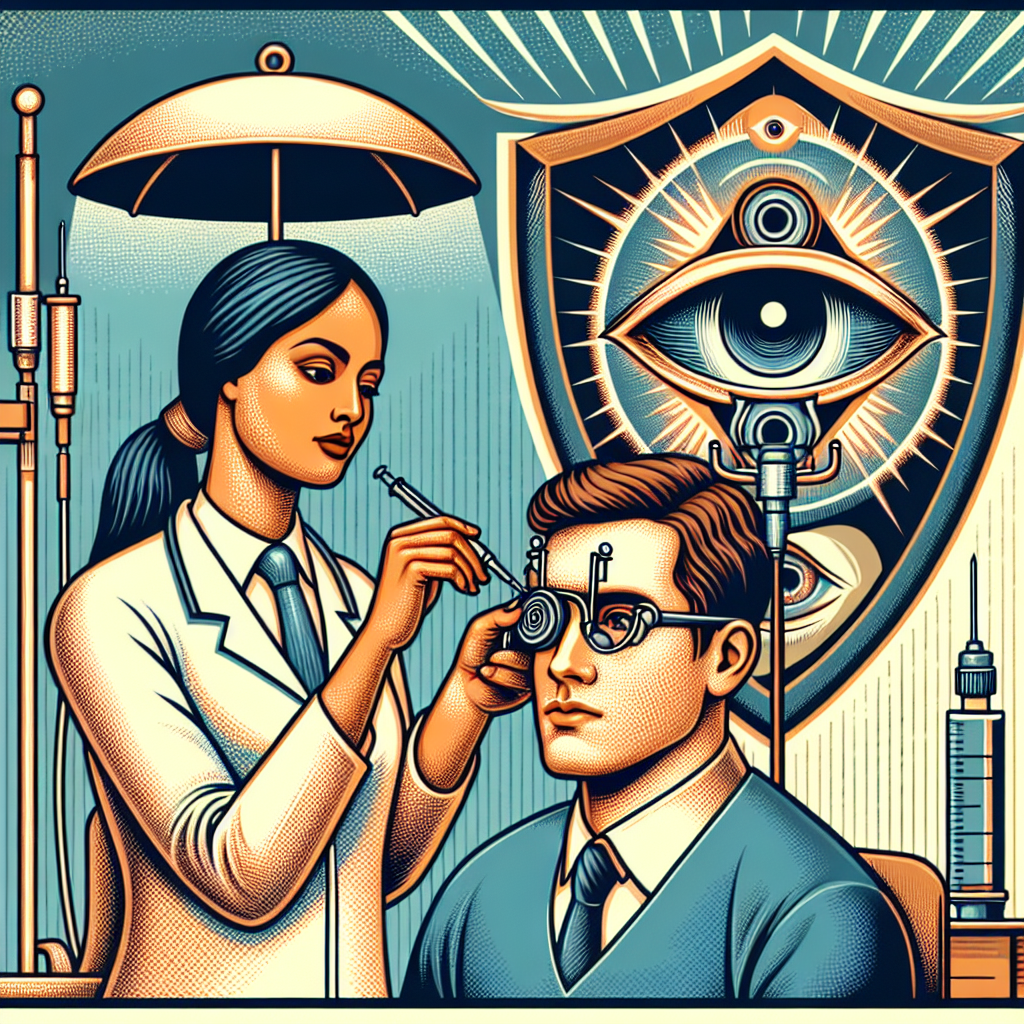Filed under Health Insurance on
Does Health Insurance Cover Ophthalmologist Visits?

Understanding the nuances of health insurance can be a daunting task, especially when it comes to specific services like ophthalmologist visits. Eye health is an essential, yet often neglected part of our overall well-being. As such, many individuals wonder if their health insurance plans provide coverage for these crucial check-ups. This blog aims to unravel the uncertainties surrounding health insurance and ophthalmology services, offering clarity and practical advice for all readers.
Understanding Health Insurance Coverage
Health insurance is a contract between an individual and an insurance company to cover healthcare expenses in exchange for a premium. These policies may cover a wide range of services, including doctor visits, hospital stays, prescription drugs, and preventive services. However, coverage specifics can vary significantly between different insurance providers and plans.
In most cases, health insurance policies provide coverage for medically necessary eye care rather than routine eye exams or vision wear like glasses or contact lenses. To determine if an ophthalmologist visit falls under coverage, we must differentiate between optometrists and ophthalmologists as eye care providers.
Optometrists vs. Ophthalmologists
- Optometrists: These professionals primarily perform eye exams, prescribe corrective lenses, and diagnose common eye conditions. They provide routine vision care but do not perform eye surgery.
- Ophthalmologists: Medical doctors who specialize in eye and vision care, capable of performing eye surgeries and treating severe eye diseases.
Visits to an ophthalmologist are often covered by health insurance if deemed medically necessary—this includes cases involving eye diseases, injuries, or significant symptoms suggesting a potential eye condition that warrants specialized assessment and treatment.
When is Ophthalmologist Coverage Medically Necessary?
Health insurance generally covers ophthalmologist visits when these are related to significant eye health issues. Here are some examples of scenarios where coverage is likely:
- Cataract Surgery: A common procedure covered by insurance when the cataract impairs daily functioning.
- Treatment for Glaucoma: Given the serious nature of this eye disease, insurance typically covers visits and treatments.
- Eye Injuries: Insurance should cover emergency visits or treatments by an ophthalmologist for acute eye injuries.
- Chronic Diseases: In conditions like diabetes leading to retinopathy, health insurance often extends coverage to ophthalmologist management.
Other services, such as optical prescriptions or cosmetic surgeries like blepharoplasty (eyelid surgery for aesthetic reasons), may not be covered by insurance plans.
Types of Health Insurance Plans and Ophthalmologist Coverage
Different health insurance plans provide various levels of coverage for ophthalmologist visits. Here’s an overview:
Health Maintenance Organizations (HMOs)
HMOs typically require patients to select a primary care physician (PCP) and need referrals to see specialists, including ophthalmologists. The visits are covered if the PCP deems them necessary due to medical reasonings.
Preferred Provider Organizations (PPOs)
PPOs allow more flexibility in choosing healthcare providers. Patients can visit specialists like ophthalmologists without a PCP referral, and coverage varies by network agreements and policy terms.
Exclusive Provider Organizations (EPOs)
Similar to PPOs regarding specialist visits, EPOs typically cover only in-network care unless in emergencies, which include urgent ophthalmologist consultations.
High-Deductible Health Plans (HDHPs)
HDHPs come with higher deductibles and lower premiums, and coverage tends to apply once deductibles are reached. Preventive services are covered, but non-preventive visits may incur out-of-pocket costs until the deductible is met.
Utilizing Vision Insurance
In addition to health insurance, individuals might consider separate vision insurance policies that specifically cover routine eye care and vision-related costs. Vision insurance often focuses on:
- Comprehensive eye exams
- Eyeglasses and contact lenses
- Discounts on refractive surgeries like LASIK
Vision insurance can supplement health insurance, providing broader coverage and reducing out-of-pocket expenses for comprehensive eye care that may not be considered medically necessary by health insurance standards.
Real-Life Example
Consider the case of Tom, a 45-year-old graphic designer who recently underwent a routine check-up with his primary care physician. During the exam, his doctor noted signs of potential glaucoma, prompting a referral to an ophthalmologist. As covered under Tom’s HMO plan, his visit resulted in necessary diagnostic tests and eventual management of the condition, all covered by insurance due to its medical necessity. This highlights how early detection and appropriate insurance coverage can support continuous eye health management.
Practical Advice for Navigating Coverage
To make the most out of your health insurance for ophthalmologist visits, consider these practical steps:
- Review Your Policy: Familiarize yourself with your insurance policy to understand what ophthalmology services are covered.
- Consult Your Provider: Reach out to your insurance provider for specifics pertinent to your plan, clarifying any confusions regarding coverage and copays.
- Referral Requirements: Verify if referrals are needed before booking an appointment with an ophthalmologist, particularly for HMO plans.
- Document Medical Necessity: Maintain thorough records of symptoms and refer to medical justifications to ensure coverage for necessary treatments.
- Explore Vision Insurance: Supplement health coverage with a vision insurance plan for complete eye care services.
FAQs
1. Does Medicare cover ophthalmologist visits?
Medicare covers ophthalmologist visits when they are deemed medically necessary. Coverage includes exams, surgeries, and treatments for eye conditions such as glaucoma or cataracts.
2. Are eye exams covered by health insurance?
Routine eye exams are typically not covered by regular health insurance policies unless they fall under preventive screenings associated with another medical condition. Vision insurance is generally required for such coverage.
3. Will health insurance cover LASIK surgery?
Most health insurance plans do not cover LASIK surgery as it is categorized as an elective procedure. Vision plans may offer discounts, but coverage for LASIK is usually limited.
4. How can I determine if my ophthalmologist is in-network?
Visit your insurance provider’s website or contact them directly for a list of in-network ophthalmologists. Verifying network status beforehand ensures reduced costs for services.
5. What should I do if insurance denies my ophthalmologist visit claim?
Begin by verifying the reason for denial, collate any supporting medical documentation, and formally appeal the decision with your insurance provider, emphasizing medical necessity.
In conclusion, while health insurance may cover ophthalmologist visits for medical conditions, being proactive about understanding individual insurance plans and supplementary vision insurance can ensure comprehensive eye care coverage and peace of mind.





